Title: Natural Beauty
Author: Ling Ling Huang
Genre: Contemporary/Horror
Trigger Warnings: Body horror (major), sexism, misogyny (mentions, from antagonist), sexual content, death, medical content, medical trauma, sexual assault, pregnancy (mentions), death of parent (mentions), vomit, cannibalism (mentions), bullying (mentions), drug use (dubious consent), unreality
Back Cover:
Sly, surprising, and razor-sharp, Natural Beauty follows a young musician into an elite, beauty-obsessed world where perfection comes at a staggering cost.
Our narrator produces a sound from the piano no one else at the Conservatory can. She employs a technique she learned from her parents—also talented musicians—who fled China in the wake of the Cultural Revolution. But when an accident leaves her parents debilitated, she abandons her future for a job at a high-end beauty and wellness store in New York City.
Holistik is known for its remarkable products and procedures—from remoras that suck out cheap Botox to eyelash extensions made of spider silk—and her new job affords her entry into a world of privilege and gives her a long-awaited sense of belonging. She becomes transfixed by Helen, the niece of Holistik’s charismatic owner, and the two strike up a friendship that hazily veers into more. All the while, our narrator is plied with products that slim her thighs, smooth her skin, and lighten her hair. But beneath these creams and tinctures lies something sinister.
A piercing, darkly funny debut, Natural Beauty explores questions of consumerism, self-worth, race, and identity—and leaves readers with a shocking and unsettling truth.
Review:
I’m always down for media skewering the beauty industry. The damage the pursuit of beauty does to to the body and the psyche, consumerism masquerading as self-care, a mantra of “wellness” that only adds more work and stress to your life while claiming if you just did it right you’d never have a negative emotion again … these are all ideas that I find fascinating and compelling and I love to explore.
Unfortunately, that’s not really what I got with Natural Beauty.
Don’t get me wrong, it tries! It absolutely tries really hard to say a lot of things. But I think the problem was that it was try to cover way too many things in a book that isn’t nearly long enough. In addition to the commentary on the beauty industry, it also tries to talk about the value of music, beauty as social capital, the nature of beauty itself (through both physical beauty and music), complex relationships with parents, the inherent power dynamics of money, possibly sustainability – and that’s just what I can remember off the top of my head.
One of the primary drivers of the book is a fascinating form of body horror serving as a counterpoint to Holistik’s beauty mandate, which was a wonderful idea and a form of body horror that I don’t see a lot, so I appreciated it both as a body horror fan and a beauty culture skeptic. But for it to have been done well, it needed to be a slow burn. And Natural Beauty is emphatically not that. In fact, in the first two-thirds or so, the bit that should have been the tense, gradual build-up to the true horror at the end, the changes happen rapidly – and our unnamed protagonist barely seems to notice them anyway, simply commenting on how her body has changed and going on about her business. What seems to be the message of the book has to struggle for page time among flashbacks to the protagonist’s past, her thoughts about piano and music in general, and interactions with her coworkers.
Then about halfway through, the focus slowly begins to shift. In case you couldn’t figure it out from the back cover or the first few pages of the book, there’s something very weird and very suspicious going on at Holistik. The story shifts away from the protagonist’s body and the idea of beauty and towards finding out exactly what is happening at Holistik. But even that is unsatisfying because the answers we eventually get don’t actually tie up all the questions that I had. (What about the deer? What about the hand cream?) The book gets weird, and not in the unsetting way I enjoy, but in a way that feels overdone and unbelievable. I was halfway through reading a particular scene before I realized it was supposed to be the climax and not just another outlandish even in the series of outlandish events that was the last third of the book.
The narration is straightforward and passionless, which is not always a bad thing, but in this case served to keep at a distance any emotions that would have made it impactful. It also made it really difficult to judge which scenes were actually happening and which were some kind of drug-induced unreality sequence. And as I mentioned previously, the body horror aspect could have been fantastic if it was paced better. But what really made it so disappointing was the fact that it couldn’t keep a focus. It started off with the beauty industry and the costs and dangers of being beautiful. But it seems afraid to go too deep into it or lean too hard into the horrifying, revolting underbelly. Whenever it approached anything particularly grim, it would back off to talk about music or the protagonist’s parents or her past. Then it shifted to “let’s find out how fucked up this company really is!” with the bonus that the protagonist wasn’t even particularly interested in this line of investigating, but got dragged along as her friends started to pry. Then at the end it abruptly switches back to body horror and beauty culture, skipping over the actual change that would have made me actually feel something about it and relying on the protagonist’s passionless commentary and opinions about how just entirely not participating in beauty is good, actually.
I wanted this to be something more than it was. I wanted a literary horror commentary on the beauty industry, beauty culture, and how the modern mandate of “wellness” just sells women more work and more reasons to appeal to the male gaze while convincing them it’s actually “self-care” and “empowerment.” What I got was an admittedly well-written but poorly paced and unfocused story about a young woman who got caught up with a really fucked up beauty brand. The ideas were strong and the concepts had a lot of potential. But the execution, at least in my opinion, didn’t do them justice.

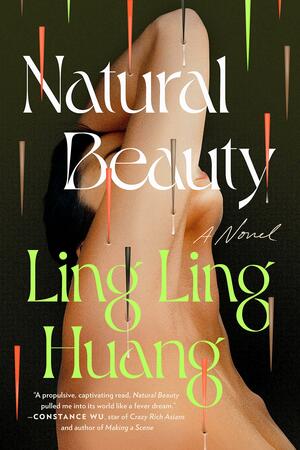
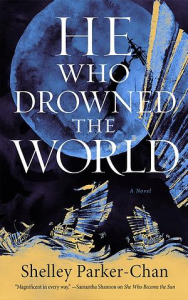
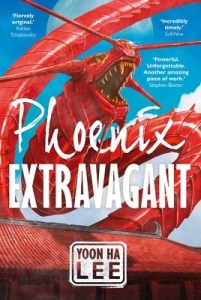
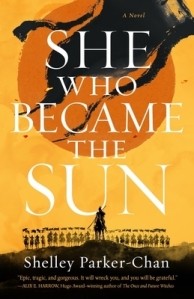
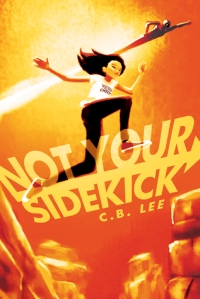
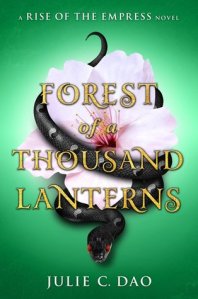 Title: Forest of a Thousand Lanterns
Title: Forest of a Thousand Lanterns